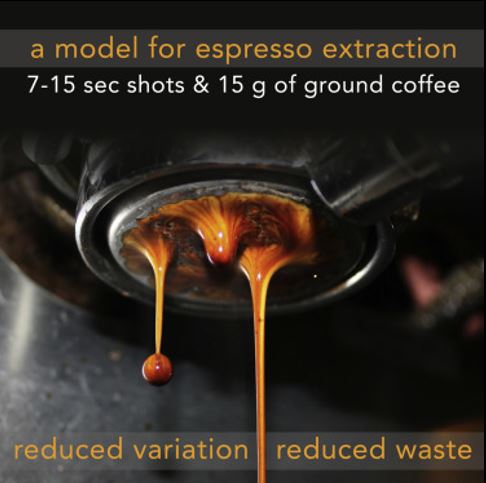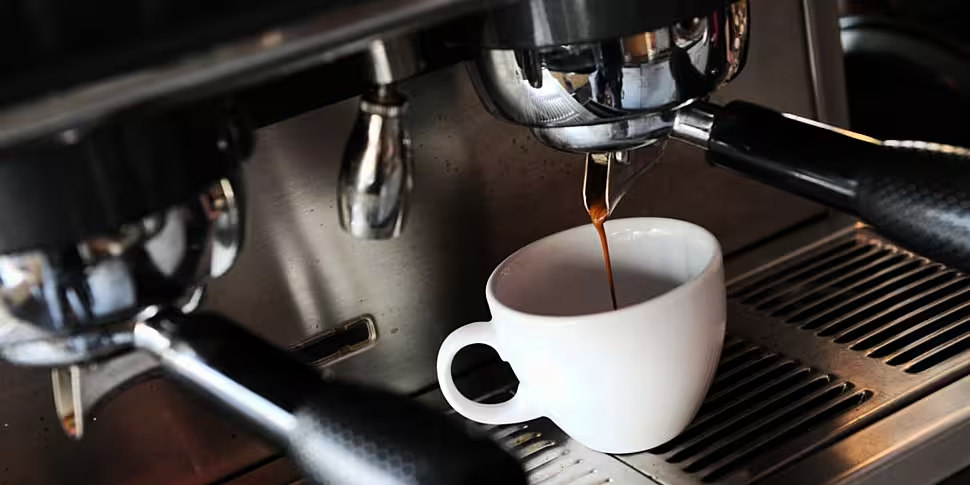Scientists believe they have come up with a formula for the perfect cup of coffee.
Fewer coffee beans, ground more coarsely, is the key to a drink that is more consistent from shot to shot, and just as strong.
Researchers at the University of Portsmouth in England say that the grinder and water pressure play "pivotal roles" in achieving beverage reproducibility.
"We suggest novel brewing protocols that not only reduce beverage variation but also decrease the mass of coffee used per espresso by up to 25%.
"If widely implemented, this protocol will have significant economic impact and create a more sustainable coffee-consuming future."
It recommends seven to fifteen second shots and 15 grammes of ground coffee.
 Image: Matter
Image: MatterThis would see reduced variation and reduced waste, they said.
They believe that finer coffee is cheaper to make, and could save millions of euro per year.
Dr Jamie Foster from the University of Portsmouth said: "The conventional wisdom is that if you want a stronger cup of coffee, you should grind your coffee finer.
"This makes sense because the finer the grounds mean that more surface area of coffee bean is exposed to water, which should mean a stronger coffee."
But they found coffee was more reliable from cup to cup when using fewer beans that were ground coarsely.
"When beans were ground finely, the particles were so small that in some regions of the bed they clogged up the space where the water should be flowing," Dr Foster said.
"These clogged sections of the bed are wasted because the water cannot flow through them and access that tasty coffee that you want in your cup.
"If we grind a bit coarser, we can access the whole bed and have a more efficient extraction.
"It's also cheaper, because when the grind setting is changed, we can use fewer beans and be kinder to the environment."
The experiment examined the espresso drink in particular.
The researchers found that: "Despite being one of the most widely consumed coffee formats, it is also the most susceptible to variation.
"We report a novel model, complimented by experiment, that is able to isolate the contributions of several brewing variables, thereby disentangling some of the sources of variation in espresso extraction.
"Under the key assumption of homogeneous flow through the coffee bed, a monotonic decrease in extraction yield with increasingly coarse grind settings is predicted."
"This result strongly suggests that inhomogeneous flow is operative at fine grind settings, resulting in poor reproducibility and wasted raw material."
The study is published in the journal Matter.









